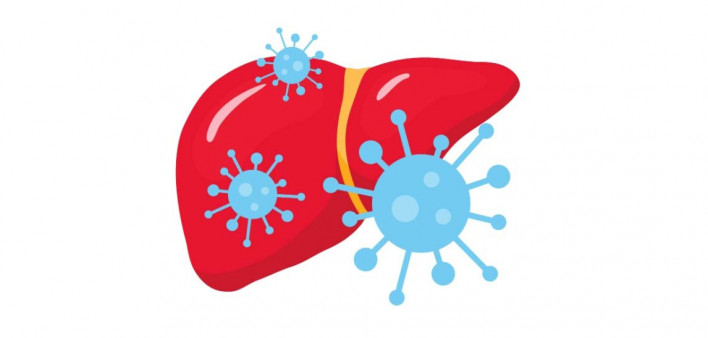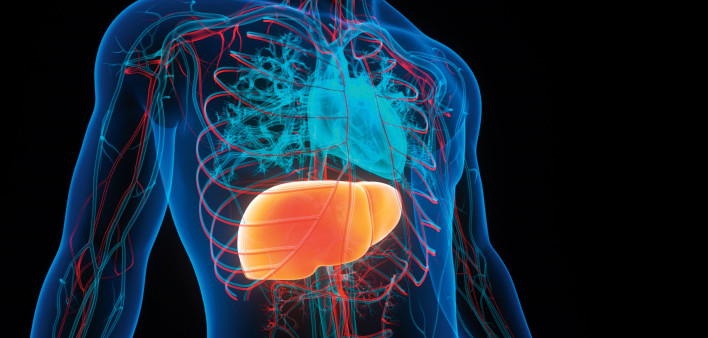Drug-resistant gonorrhea is on the rise, but experts say benefits are worthwhile for those at high risk for sexually transmitted infections.
As doxycycline post-exposure prophylaxis (doxyPEP) becomes more widely used for prevention of sexually transmitted infections (STIs), questions remain about its implementation in the real world. At a symposium yesterday at the International AIDS Society Conference on HIV Science (IAS 2025), leading experts discussed outstanding challenges, including rising antibiotic resistance.
DoxyPEP involves taking a single 200 milligram dose of the antibiotic doxycycline within 72 hours after sex. Results from the DoxyPEP trial, which enrolled men who have sex with men and transgender women in San Francisco and Seattle, showed that doxyPEP significantly reduced the risk of chlamydia, syphilis and gonorrhea. DoxyPEP was less effective against gonorrhea in French trials, likely due to a higher background level of drug resistance. And dPEP Kenya, a study of young cisgender women in Africa, found that doxyPEP was not effective, largely due to inconsistent use.
At the IAS conference, Annie Luetkemeyer, MD, of the University of California San Francisco, who co-led the San Francisco and Seattle trial, offered practical advice about clinical challenges in doxyPEP delivery. Elizabeth Bukusi, MD, PhD, MPH, of the Kenya Medical Research Institute, a principal investigator for the dPEP Kenya trial, discussed implementing doxyPEP for cisgender women. Finally, Jean-Michel Molina, MD, of University of Paris Cité, who has led multiple STI and HIV prevention trials, discussed moving forward with doxyPEP in the face of growing antimicrobial resistance.
Since these trial results were reported, several cities and countries have issued doxyPEP guidelines, Luetkemeyer noted. San Francisco, which released the first-ever guidance in 2022, gives a broad recommendation that goes beyond the populations enrolled in the doxyPEP trials, including gay men and gender-diverse people who have condomless sex with at least one partner but have not had a STI in the past year, because “we don’t want to wait until the horse is out of barn,” she said. “If you try to restrict doxyPEP only to certain populations at the very highest risk, you’re going to avert less STIs.”
More recent guidance from Australia and the United Kingdom is more cautious, emphasizing syphilis prevention. Belgium and the Netherlands, among others, do not recommend doxyPEP for STI prevention.
Concern About Resistance
The main reason for caution is that widespread use of doxycycline PEP—or even daily use for pre-exposure prophylaxis, known as doxyPrEP—could promote antibiotic resistance. Gonorrhea is often already resistant to tetracyclines (the drug class that includes doxycycline) and most other drugs once used to treat it. What’s more, Neisseria gonorrhoeae can potentially transfer its resistance genes to other species of bacteria. Tetracycline resistance is not a big concern for chlamydia or syphilis.
An early analysis from the San Francisco and Seattle trial did not show a marked increase in antimicrobial resistance associated with doxyPEP use. Presenting the findings at the 2023 Conference on Retroviruses and Opportunistic Infections, Luetkemeyer said the data were “reassuring,” but added that that larger and longer studies are needed.
As use of doxyPEP has risen, however, the concerns about resistance have been confirmed. The week before the conference, a report in The New England Journal of Medicine showed that extensively drug-resistant gonorrhea is spreading.
David Helekal, PhD, of the Harvard T.H. Chan School of Public Health, and colleagues analyzed more than 14,000 N. gonorrhoeae genome sequences from 2018 through 2024, generated through the Centers for Disease Control and Prevention surveillance system. They found that the proportion of gonorrhea isolates carrying tetM, a gene that confers high-level tetracycline resistance, rose from less than 10% in 2020 to over 30% in the first quarter of 2024. Furthermore, the number of N. gonorrhoeae lineages carrying the gene rose from one to four. Concerningly, two of these lineages also carried mutations that increase resistance to ceftriaxone, one of the only remaining effective drugs.
The increase in resistance coincided with a shift away from azithromycin toward doxycycline for chlamydia treatment, substitution of doxycycline due to a shortage of benzathine penicillin to treat syphilis and growing use of doxyPEP. “These results suggest that widespread use of doxycycline for the treatment and prevention of sexually transmitted infections may be contributing to reshaping of the gonococcal population in the United States,” the researchers wrote.
The prevalence of drug resistance varied by region in the United States, being highest in the Northwest. According to a report published earlier this year, high-level tetracycline resistance among gay men with gonorrhea in Seattle rose from 2% in early 2021 to 65% by the end of 2024; Seattle issued its doxyPEP guidelines in mid-2023. Specifically, taking more than three doses of doxyPEP per month was associated with having both overall and high-level resistance. In addition, tetracycline-resistant Staphylococcus aureus and group A Streptococcus were more common among doxy PEP users compared with non-users. Jonathan Volk, MD, MPH, of Kaiser Permanente Northern California told Healio that their experience at Kaiser “mirrors these national trends in gonorrhea resistance.”
Gonorrhea resistance rates are even higher in other parts of the world. A recent systematic review and meta-analysis published in JAC-Antimicrobial Resistance—which included studies done before the advent of doxyPEP—found that the prevalence of tetracycline-resistant N. gonorrhoeae ranged from 27% in North America to about 50% in Europe to more than 80% in sub-Saharan Africa and East Asia.
Using DoxyPEP Wisely
Despite these concerns, the experts agreed that doxyPEP is an appropriate option for some people at risk for STIs, with the benefits outweighing potential harms. For instance, some participants in the DoxyPEP trial had previously had STIs so often that they were often using antibiotics for treatment already. Preventing STIs instead would not only spare them pain and anxiety but would also reduce onward transmission.
“Clearly, doxyPEP is well tolerated. It’s highly accessible and very cheap. But there are still long-term uncertainties which need to be addressed in the future,” Molina said. “I think we can do better, but it is time to implement doxyPEP in people at risk. We need to be cautious. It’s not for everyone. I think it would be wise to limit the number of doses of doxyPEP per week…one to two dose per week seems to be reasonable.”
Luetkemeyer discussed the importance of counselling for people considering doxyPEP. “First of all, it’s not 100% effective—very few things in life are—but it does really reduce the risk of chlamydia and syphilis markedly,” she said. “I think the message does need to be that as a tool for preventing gonorrhea, doxyPEP is not ideal, and certainly not nearly as effective as it is for chlamydia and syphilis. People need to be aware of that, so they have reasonable expectations. Also, there’s no protection with doxyPEP against viral infections. You need to remind them that it’s not going to prevent herpes, HPV [human papillomavirus], mpox or viral hepatitis, and we do have really good prevention tools for each of these viral infections.”
Bukusi stressed that young women in Africa are at very high risk for STIs and their complications, including pelvic inflammatory disease and infertility, largely driven by chlamydia. Her team is finishing up a study asking whether doxyPEP works for cisgender women if taken consistently, which did not happen in the dPEP Kenya trial in part due to disruptions at the start of the COVID pandemic. They are exploring directly observed therapy at a clinic, another safe place or via telemedicine. “We don’t have answers yet, and these answers seem to be very difficult to come by,” she said. “It is not just about clinicians being able to have the power to make decisions, it is about talking to these young women and finding out what works for them.”
The speakers also agreed that while doxyPEP is highly effective for preventing chlamydia and syphilis, it will be challenging to use antimicrobial approaches for gonorrhea.
“With gonorrhea, clearly, antibiotic prophylaxis is not the way to go, and we need to find other interventions,” Molina said. “A vaccine would be great, and there are a number of ongoing trials to look at vaccines for gonorrhea. So far, we’ve seen very disappointing results, but let’s hope that in future, we get better results.”
Click here for more news about doxyPEP.
Click here for more news from IAS 2025.
POZ is an official media partner of IAS 2025.
- #chlamydia
- #doxycycline
- #doxyPEP
- #gonorrhea
- #IAS 2025
- #Prevention
- #sexually transmitted infection
- #syphilis









